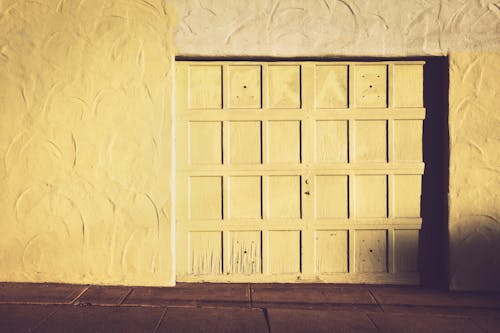Common Causes of Garage Door Noise
Common Causes of Garage Door Noise
Blog Article

Many homeowners can relate to the frustrations of a noisy garage door. The sounds of creaking, grinding, or rattling can be disruptive, especially if your garage is attached to your home. Not only can this noise affect your comfort, but it can also signal potential issues with your garage door system. As you seek solutions, understanding the common causes of garage door noise and exploring effective noise reduction techniques can lead to a quieter and more enjoyable home environment.
Common Causes of Garage Door Noise
Identifying the root causes of noise is the first step toward achieving effective garage door noise reduction. Several factors can contribute to the sounds emanating from your garage door:
- Worn-out Parts: Over time, components such as rollers, hinges, and tracks can wear down, leading to increased friction and noise during operation.
- Poor Installation: If a garage door is not installed correctly, it can cause misalignment, resulting in noisy operation as parts struggle to work together smoothly.
- Lack of Maintenance: Dust and debris can accumulate in the tracks and on the rollers, creating additional noise. Regular maintenance is key to preventing these issues.
- Type of Garage Door: Certain materials, such as steel, may transmit sound more than others. Additionally, the design of the door can influence the amount of noise produced.
Effective Noise Reduction Techniques
Once you understand the potential causes, you can implement several techniques to minimize garage door noise effectively. Here are some actionable tips to consider:
- Regular Maintenance: Schedule routine maintenance checks for your garage door. Lubricate moving parts, such as rollers and hinges, with a silicone-based lubricant to reduce friction and noise. Cleaning the tracks ensures smooth operation.
- Adjusting the Door: If your garage door is misaligned, it may need adjustments. Ensure that it hangs evenly and moves smoothly along the tracks. If you are unsure how to make these adjustments, consult with a professional.
- Soundproofing Materials: Consider using soundproofing materials, such as acoustic panels or sound-deadening mats, to absorb noise. Installing these materials on the walls of your garage can significantly reduce the sound that escapes to your living areas.
- Quieter Garage Door Openers: If your garage door opener is particularly noisy, upgrading to a quieter model can make a significant difference. Belt-driven openers are generally quieter than chain-driven ones, making them a suitable choice for noise-sensitive environments.
Recommended Products for Soundproofing Garage Doors
To enhance your efforts in garage door noise reduction, consider investing in specialized products that can aid in minimizing sound levels:
- Acoustic Panels: These panels can be mounted on walls to absorb sound and reduce echo. They are available in various sizes and colors, allowing you to choose an option that fits your aesthetic.
- Sound-Dampening Mats: Placing these mats under your garage door can help absorb vibrations and minimize noise when the door opens and closes.
- High-Quality Rollers: Replacing worn-out rollers with high-quality, noise-reducing rollers can make a significant difference in the smoothness and quietness of your garage door operation.
In conclusion, tackling garage door noise requires understanding its causes and implementing effective solutions. By performing regular maintenance, making necessary adjustments, and utilizing soundproofing products, you can create a quieter garage space. For more information on effective strategies for garage door noise reduction, including professional insights and product recommendations, visit Goldie Garage Doors. Taking these steps will not only enhance your comfort but also extend the lifespan of your garage door system.
Report this page